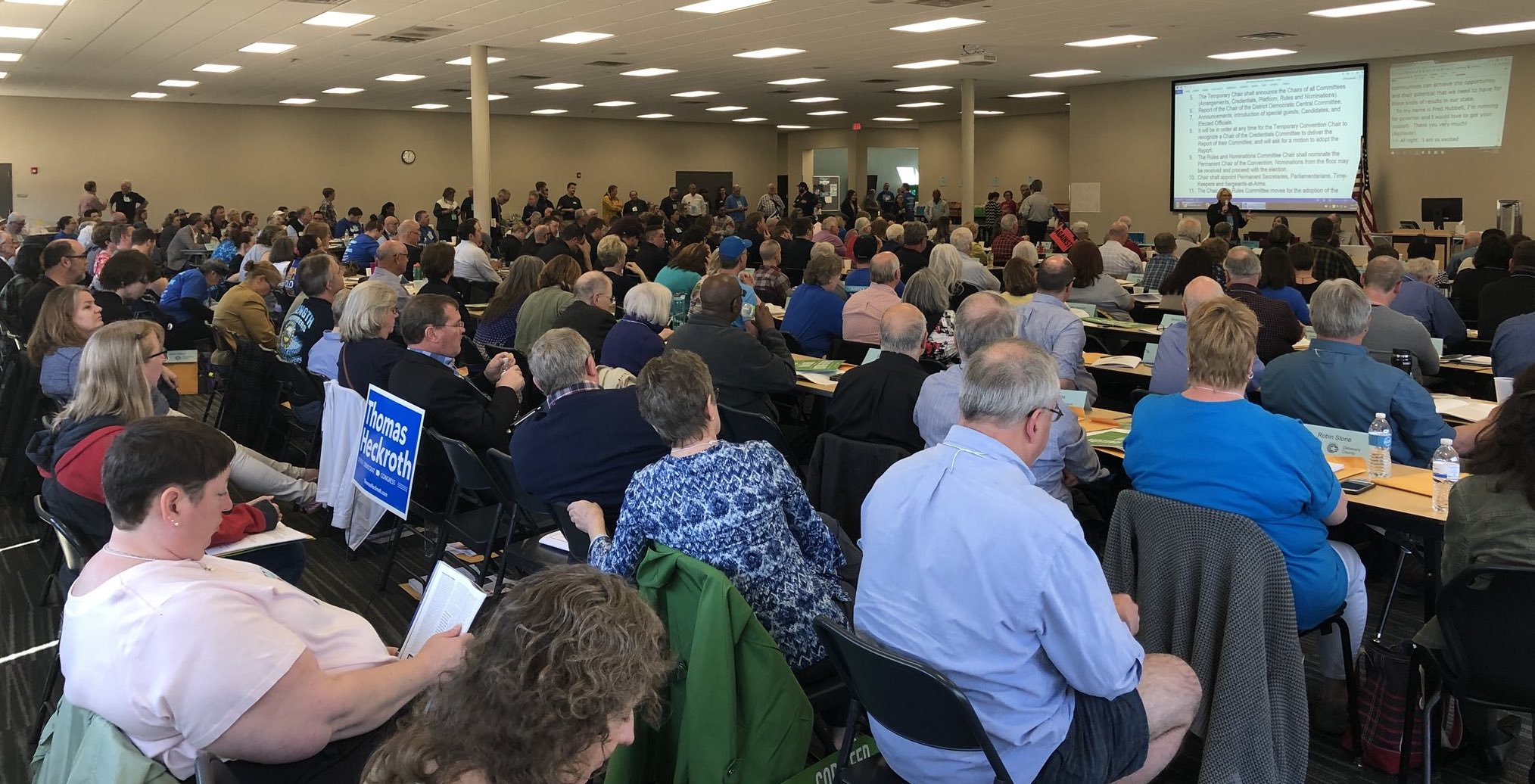Financial reports for the end of 2009 were due with the Federal Election Commission on January 31. Here are some highlights.
The Iowa Democratic Party announced yesterday that it raised about $2.47 million across all accounts in 2009, while the Republican Party of Iowa raised $1.46 million. IDP chair Michael Kiernan said the party had met its goal of securing “the resources needed to win this November.” Details:
IDP filed $1.23 million in the state report. RPI filed $450,137 in the same report.
Filed 19 January 2010. Iowa Ethics and Campaign Disclosure Board.
http://iowa.gov/ethics/
IDP filed $148,574 in State Party Building Fund Report. RPI filed $177,365.
Filed 28 January 2010. Iowa Ethics and Campaign Disclosure Board.
http://iowa.gov/ethics/
IDP filed $1.09 million filed in Federal Year-End Report. RPI filed $837,406.
Filed 31 January 2010. Federal Elections Commission.
http://fec.gov
The money reported in the federal year-end report can be used to support any candidates and campaigns. The money in the state fund can be used on statewide races or Iowa House and Senate races. The State Party Building Fund money can’t be used on candidates or campaigns, but only on expenses for the building where the party headquarters is located (such as equipment or maintenance).
The Iowa GOP responded that it entered 2010 with about $100,000 more cash on hand than Iowa Democrats, but I don’t know whether its cash is in restricted or unrestricted accounts. (UPDATE: The Iowa Democratic Party disputes this claim. Adding the amounts from all three reports filed, the IDP has $449,334.94 on hand, while “RPI has $265,281.06 on hand between all three reports filed.”)
As for the federal races, Senator Chuck Grassley raised about $810,000 in the fourth quarter of 2009, spent about $156,000 and ended the year with about $5 million cash on hand. That’s about ten times as much as Democrat Roxanne Conlin has on hand for her campaign. Democrats Bob Krause and Tom Fiegen reported approximately $3,500 and $400 on hand, respectively.
IowaPolitics.com posted numbers for the Congressional candidates here. I was most interested in the numbers from the second and third districts. In IA-02, two-term incumbent Dave Loebsack raised $94,479 in the fourth quarter, spent $36,572 and ended the year with $336,311 cash on hand.
Surprisingly, Steve Rathje led the money race on the Republican side, raising $59,130 in the fourth quarter, spending $12,648 and ending with $46,242 cash on hand. The 2008 GOP nominee, Mariannnette Miller-Meeks, raised $20,660 (including $4,000 she gave herself), spent $39 and had $20,620 on hand. IowaPolitics.com didn’t mention numbers for Chris Reed, but The Iowa Republican blog reported that Reed raised “a miniscule $2,833.75 in the last quarter of 2009,” ending the year with “just over $2000 cash on hand.”
In the third district, seven-term incumbent Leonard Boswell raised $169,377 in the fourth quarter, spent $50,643 and had $462,193 cash on hand. Most of his money came from political action committee contributions.
Jim Gibbons led the crowded Republican field, thanks to support from heavy-hitters like Bruce Rastetter as well as a number of political action committees. Gibbons raised $207,310, spent $2,240 and ended the year with $205,069 on hand and $2,686 in debts owed. Craig Robinson of the Iowa Republican blog is ready to declare victory for Gibbons in the primary already, based on these numbers. However, Bleeding Heartland user mirage (a supporter of State Senator Brad Zaun) noted in the same thread, “About $51,000 of Gibbons funds will be restricted (meaning they can’t be used against Zaun in a primary), and about $130,000 came from outside the 3rd district.”
Speaking of Zaun, he raised $30,600, spent $93 and ended 2009 with $30,507 on hand. Presumably he has raised more money since January 1, because he made a television ad buy last week. But as Robinson noted triumphantly, “Even if [Dave] Funk or Zaun raised $1000 everyday between now and the primary, they still wouldn’t match what Gibbons currently has in his campaign account.”
Funk, the IA-03 candidate favored by the Tea Party crowd, raised $22,685 in the fourth quarter, spent $19,553 and ended the year with $16,507 on hand. According to mirage, much of Funk’s remaining money is restricted for use after the primary. I don’t think he’ll be needing that.
Mark Rees, who is running as a more moderate Republican, raised $3,100 and loaned his own campaign $52,647. He spent $3,247 and ended the year with $52,500 and $52,647 in debts owed to himself. I don’t know how much of a moderate GOP base is left in the Des Moines suburbs, but if conservatives divide their support among three or four candidates, Rees could slip through.
Continue Reading...


